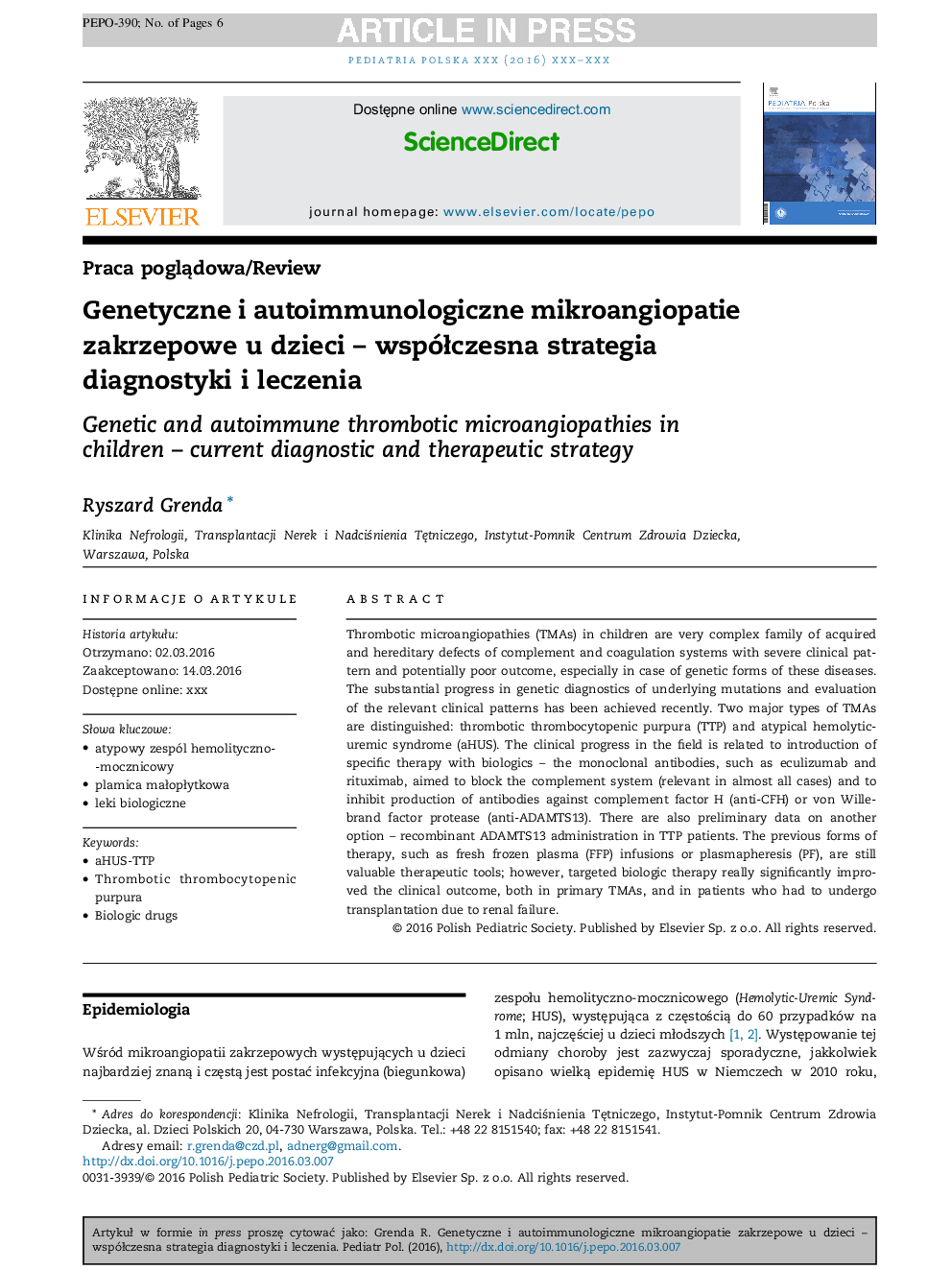| Article ID | Journal | Published Year | Pages | File Type |
|---|---|---|---|---|
| 2674328 | Pediatria Polska | 2016 | 6 Pages |
Abstract
Thrombotic microangiopathies (TMAs) in children are very complex family of acquired and hereditary defects of complement and coagulation systems with severe clinical pattern and potentially poor outcome, especially in case of genetic forms of these diseases. The substantial progress in genetic diagnostics of underlying mutations and evaluation of the relevant clinical patterns has been achieved recently. Two major types of TMAs are distinguished: thrombotic thrombocytopenic purpura (TTP) and atypical hemolytic-uremic syndrome (aHUS). The clinical progress in the field is related to introduction of specific therapy with biologics - the monoclonal antibodies, such as eculizumab and rituximab, aimed to block the complement system (relevant in almost all cases) and to inhibit production of antibodies against complement factor H (anti-CFH) or von Willebrand factor protease (anti-ADAMTS13). There are also preliminary data on another option - recombinant ADAMTS13 administration in TTP patients. The previous forms of therapy, such as fresh frozen plasma (FFP) infusions or plasmapheresis (PF), are still valuable therapeutic tools; however, targeted biologic therapy really significantly improved the clinical outcome, both in primary TMAs, and in patients who had to undergo transplantation due to renal failure.
Related Topics
Health Sciences
Medicine and Dentistry
Dermatology
Authors
Ryszard Grenda,
